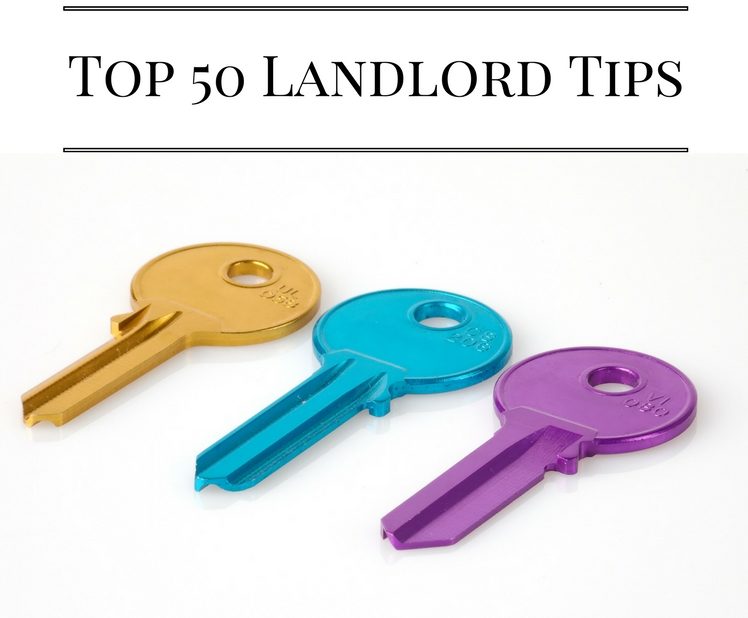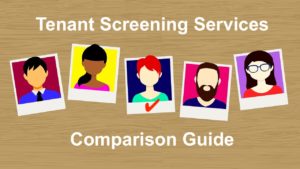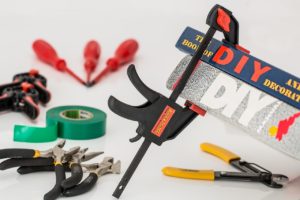Being a new landlord can be overwhelming at first. I’ve made more than my fair share of mistakes. Below are my top landlord tips based on my experience and the experiences of others to help you get started. The list is long but not exhaustive. Please add your landlord tips in the comments section.
Skip to the bottom of this article for a shareable infographic summary of the Top Landlord Tips.
Note: I am not a practicing Lawyer or CPA and this is not meant to replace professional advice. It is only meant to inform you of potential issues you may encounter as a new landlord.
Tip #1 – Tenant-proof your rental
OK. This landlord tip is a little misleading. There is no way to completely tenant-proof a rental but there are definitely steps you can take to prevent wear and tear. Replace carpets with hardwoods or laminate floors. Use semi-gloss paint in key areas like family rooms, kitchens and baths. Consider wainscoting and chair rails. If you pay the water bill, convert to low flow toilets. Fix any loose cabinets, doorknobs and steps. Always repair any leaky faucets, sticky windows, broken outlets, etc. before handing over the keys.
Read more on how to save thousands on tenant turnover costs.
Tip #2 – Build a 10% reserve
Ideally you will have a minimum of 10% of annual rent revenue set aside for inevitable repairs, maintenance and vacancies. If not, accumulate profits in a reserve account until you do have enough.
Tip #3 – Know your expenses
 Build a budget and keep track of your expenses. Don’t forget some of the common but not obvious expenses. Aside from the obvious mortgage and property taxes you may encounter some of these expenses – Certificate of Occupancy fees, CPA fees, marketing expenses, realtor fees for placing tenants, landlord insurance, proactive maintenance, tools, utilities, locksmith fees, office supplies and postage.
Build a budget and keep track of your expenses. Don’t forget some of the common but not obvious expenses. Aside from the obvious mortgage and property taxes you may encounter some of these expenses – Certificate of Occupancy fees, CPA fees, marketing expenses, realtor fees for placing tenants, landlord insurance, proactive maintenance, tools, utilities, locksmith fees, office supplies and postage.
Tip #4 – Leverage technology
The Internet has changed the way tenants and landlords interact. Be sure to embrace modern technology not only for the convenience, but also for the fact that it opens up a wider pool of tenants. List your rental on Zillow and Craigslist. Perform screenings and even collect rent online.
Don’t forget the rental itself. Adding smart locks and smart thermostats can save you and your tenants hundreds. I am adding Ring Video Doorbells to my rentals because they are great way to enhance appeal and security. Your tenants will appreciate these modern touches and may even pay you more!
Tip #5 – Get adequate insurance coverage
You already know you need to insure your property but does it cover loss of income? Rental insurance is typically referred to as Dwelling policies. You should opt for a DP-3 policy as these include full replacement costs. Learn more about landlord insurance and implications of renting to family members.
Also, consider additional liability protection via an umbrella policy. It is a very cost effective way to protect your assets from a catastrophic loss. Finally, always require tenants to get their own renter’s policy to cover their belongings. Landlord policies do not cover your tenant’s personal belongings.
Tip #6 – Do a video walkthrough
It is invaluable to have video proof if there is ever a dispute about the condition of the property! Always perform a walkthrough during move ins and move outs using your smart phone. Take a general video and make sure to get photos of actual damages to include in your final report to the tenant. Always use a checklist to make sure you capture everything.
Tip #7 – Run credit and background checks
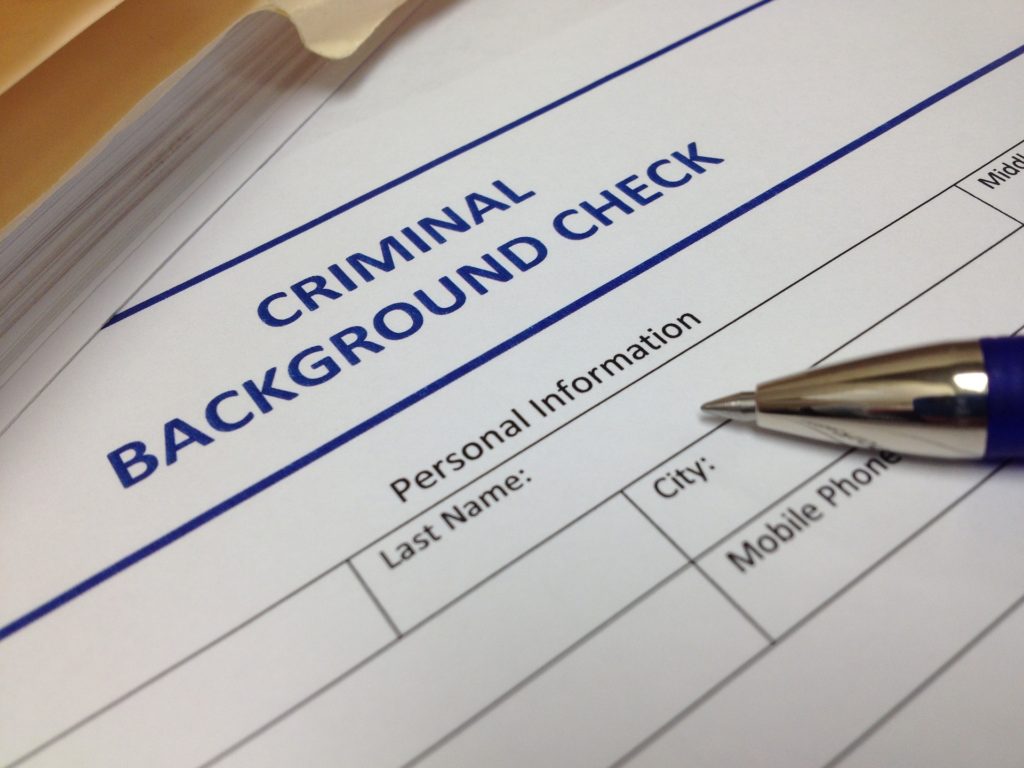 This might be the most important of all the landlord tips in this article! While most landlords screen for income and credit, you should never rent to a prospective tenant until you run a background check.
This might be the most important of all the landlord tips in this article! While most landlords screen for income and credit, you should never rent to a prospective tenant until you run a background check.
There are many tenant screening services with varying degree of details but most should provide basics such as a SS# verification, county or state criminal check, sex offender registry check, eviction history, employment history and credit check. The big credit reporting agencies offer this full background check service. TransUnion’s service is called SmartMove.
I like to use Cozy as I am already signed up with them. See their example background report image here.
Tip #8 – Screen tenants thoroughly
In addition to running credit and background checks, be sure to set up a process for screening tenants. Here are some key questions to ask in your screener to use before running checks.
Look for things that will potentially eliminate a prospective tenant before moving to the next step.
- How long do you plan to live here?
- How many people will be living in the unit?
- Please explain any gaps in recent employment and housing.
- Can you provide your last two landlords’ contact information?
- Can you verify your monthly income?
- Have you ever been evicted?
- Do you have any pets?
- Have you ever filed for bankruptcy?
- Have you ever been convicted of a felony?
Here’s my list of 27 screening questions I use to identify potential red flags.
Tip #9 – Have a consistent and fair application process
The Fair Housing Act prohibits housing discrimination on the basis of race, color, national origin, religion, sex, familial status or handicap. A consistent and fair application process will help protect you from potential false claims of violating this act. Always document your reasons for denying a prospective tenant. Read more here.
Tip #10 – Learn your state’s landlord-tenant laws
Every state has laws protecting both tenants and landlords. Get familiar with your state’s laws. Are you allowed to charge for a pet security deposit? What are you required to disclose to tenants? How much can you charge for late fees? There is no better resource than Nolo. See your state’s laws here. Landlordology also offers a nice summary by state here.
Tip #11 – Hire a Tax professional
 The tax rules governing real estate in general, and rentals specifically, are very complicated and ever changing. The optimal tax professional is one who is experienced in your niche, is available year round to consult on deals, is proactive in finding you tax savings and who has successfully defended clients with the IRS. Note that while being a CPA is not necessary, it does represent a higher standard of care and overall business expertise that you may find useful as you build your team.
The tax rules governing real estate in general, and rentals specifically, are very complicated and ever changing. The optimal tax professional is one who is experienced in your niche, is available year round to consult on deals, is proactive in finding you tax savings and who has successfully defended clients with the IRS. Note that while being a CPA is not necessary, it does represent a higher standard of care and overall business expertise that you may find useful as you build your team.
Tip #12 – Keep receipts and good records
Generally speaking, you should keep receipts and records for all of your investments for 7 years but it really varies by asset type. You need to calculate cost basis and depreciation on your business assets over their tax life which can vary from a few years to decades. My advice is to keep everything until 7 years after you dispose of that asset. Don’t forget to log your mileage. This tax deduction can add up quickly and is required by the IRS in case of an audit.
Tip #13 – Keep a separate bank account
Not only do you need to keep good records, you also need to keep them separate. Do not mix bank accounts or credit cards. This not only is necessary to maintain a truly independent entity but it also makes record keeping significantly easier. Check out this article by Brandon Hall at BiggerPockets®
Tip #14 – Insist on 1099-Misc Forms
You are generally required to file a 1099-Misc if you paid an independent contractor (sole proprietor, LLC, partner, etc.) during the tax year for work in the course of your business. Fines are steep for non-compliance so insist that any contractor performing significant work be willing to provide their SS# or their Federal ID#. Do not work with a contractor who refuses this information.
Tip #15 – Have a plumber on call
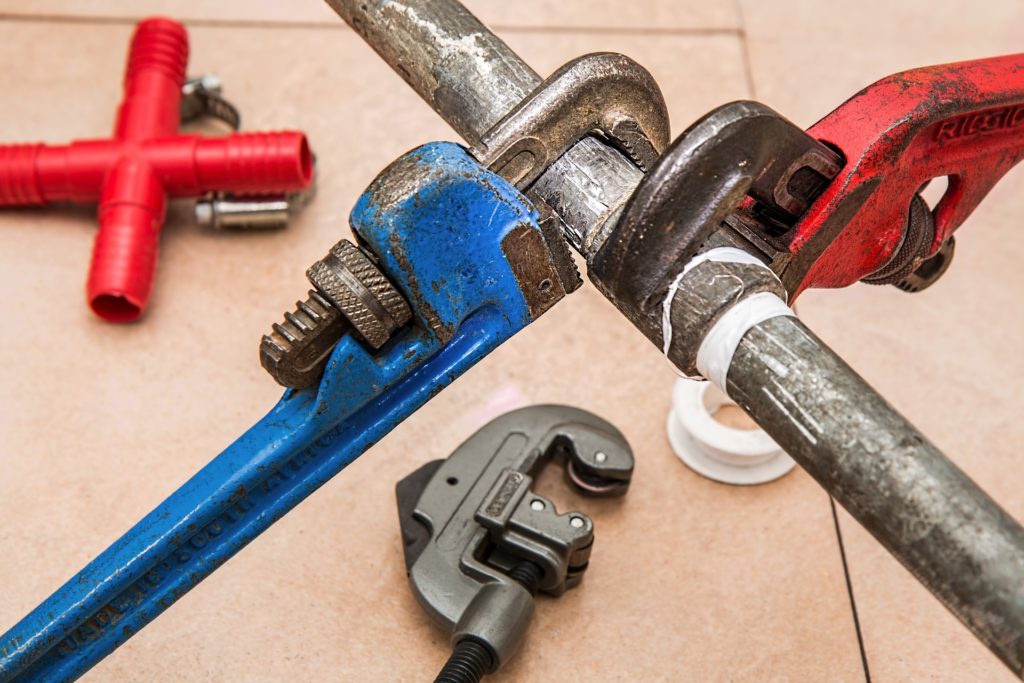 This is a must! Find a good plumber or two that are responsive to emergencies like frozen pipes and have them “on call.” Establish a working relationship with them. Let them know you own rental properties and will call on them from time to time. I find you get their best rates when they know you will be calling on them repeatedly up front. If you don’t know any in your area, you can find one on Angie’s List or Thumbtack.
This is a must! Find a good plumber or two that are responsive to emergencies like frozen pipes and have them “on call.” Establish a working relationship with them. Let them know you own rental properties and will call on them from time to time. I find you get their best rates when they know you will be calling on them repeatedly up front. If you don’t know any in your area, you can find one on Angie’s List or Thumbtack.
Tip #16 – Have a handyman on call
Same as #15 above but here you are looking for a general handyman. Timely repairs are the key to keeping tenants happy and paying on time. Things will come up from time to time where you will be unavailable or unable to make the repair yourself. Having a handyman ready allows you to take care of your tenants needs quickly. Not sure you want to be your own property manager? Here are some things to consider.
Tip #17 – Add smart clauses to your leases
This merits an entire article by itself but I always include the following as a minimum:
- Late fees (be sure they comply with local laws)
- Payments are applied to outstanding bills and fees before being applied to the next month’s rent
- Tenants are responsible for first $50 of repairs and 100% of all damages caused by tenants
- Access to unit and right to show unit to prospective tenants
- Tenant must provide security code if they get a security system
- Satellite TV cannot be installed without written approval
- Maximum occupancy
- No pets or separate pet addendum
- Tenant responsible for snow and lawn maintenance if applicable
- No subleasing allowed
- Tenant shall not perform improvements, including painting, without prior written lessor consent
- Tenant must obtain renters insurance
- No smoking in rental allowed
- Heat must not go below 60o
Get all my Smart Lease Clauses in my Guide To Writing Great Leases.
Tip #18 – Document all tenant interactions
Keep a log of all interactions with your tenants. Note what was discussed and what the outcome was. This will be necessary as your business grows and you struggle to remember the details of each conversation with tenants. I combine a detailed log in my expenses tracker for simplicity.
Tip #19 – Establish “Office Hours”
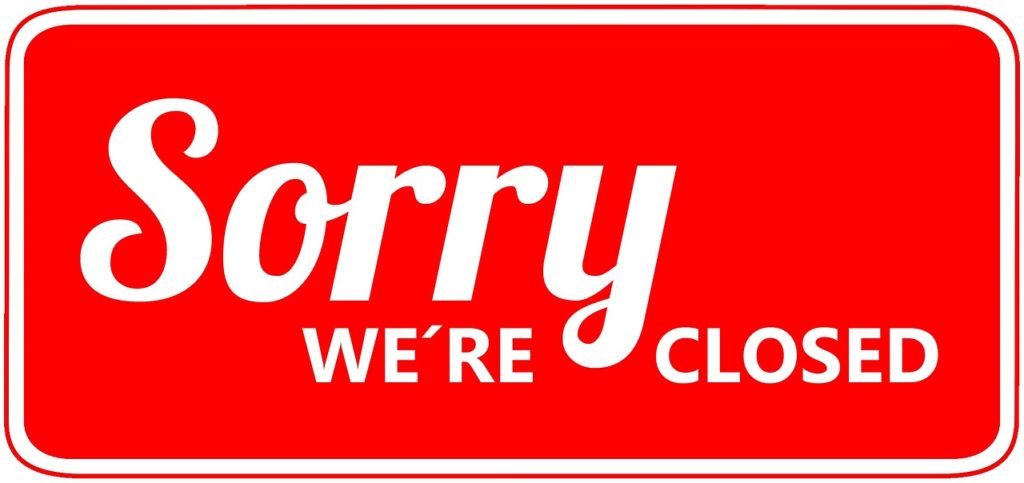 Let your tenant know how and when it is best to reach you. Make it clear that you are not available after hours and holidays. In case of emergencies they should contact a professional and take steps to mitigate damage.
Let your tenant know how and when it is best to reach you. Make it clear that you are not available after hours and holidays. In case of emergencies they should contact a professional and take steps to mitigate damage.
Tip #20 – Get tenant approval before visiting
Even though I include a provision in all leases that I have the right to enter the property for inspections and repairs, I do stipulate that I have to give them notice. Always reach out to your tenants to get their acknowledgement that you can enter the unit. Only enter the unit if you have a valid reason. I avoid random inspections as it breeds mistrust.
Tip #21 – Talk to previous landlords
I insist on references from at least two prior landlords. Do not rent to anyone who will not provide a reference or asks you not to contact the former landlord until they say it’s OK. They will have no problem with this if they have nothing to hide. Ask if the tenant received their full security deposit back. This can tell you if you are dealing with a potential problem tenant.
Tip #22 – Be firm with late fees
I allow a five-day grace period. Anything outside that will incur a late fee. If you are lenient on this clause, your tenants will begin to test all of your lease provisions. It’s not personal. It’s a business. Be sure to follow your local laws for late fees.
Tip #23 – Comply with security deposit laws
Understand what is required in your state when setting up a security deposit. Do you need to give annual notice of balance? Does your state require an interest bearing account? Do you need to give your tenant the right to receive the interest directly? What is the maximum you are legally allowed to charge? What are you allowed to use the security deposit for? Know the rules and comply with them. Security deposits are a big cash outlay for tenants and you should ensure you are handling their deposits with integrity. Check out Nolo’s comprehensive legal guide for more on security deposits and other rules every landlord should know. Every Landlord’s Legal Guide.
Tip #24 – Use certified mail
Having a record of official notices and correspondences will prove invaluable in the event you are facing an eviction or a lawsuit from a tenant. Emails won’t always cut it. It’s a small investment for significant peace of mind.
Tip #25 – Hold an open house
One of the hardest parts of going it alone in the landlord business is the need to show the property several times before you find the right tenant. Screening is your best defense against time wastage. However, A good way to get a lot of prospective tenants quickly is to hold an open house. You can attract a lot of potential tenants in a short time and be able to screen those who are interested on the spot. Post flyers in the area, have a sign out front and even be sure to let local realtors know about the open house if you are willing to pay a commission.
Tip #26 – Group rental showings
Similar to #25 above, group showings where possible or better yet, have set hours for showings so you minimize your back and forth time. However, in more competitive markets, you may have to be more flexible.
Even better, let prospective tenants conduct self-guided tours! It may sound like a crazy idea, but new technology and safety features makes this a real possibility! It will also increase the pool of applicants because it allows tenants to view properties when it convenient for them.
Tip #27 – Don’t drive up to your property in a BMW
Flashing your wealth is never a good idea. Don’t drive up to your properties in an expensive care or wearing expensive clothes and jewelry. It only leaves the impression that you can afford to make those needed repairs or take a reduction on the rent. Avoid the appearance of wealth and superiority.
Tip #28 – Have tenants sign a condition form
Ensure your tenants acknowledge the condition of the unit both when they move in and when they move out by signing a condition form. Make sure they are thorough in their inspection when they move so they have no reason to come back 4 months later with a pre-existing maintenance issue.
Tip #29 – Communicate repairs fees in advance
Hand your new tenants a schedule of repairs and associated costs when they move in. This way, there will be no argument down the road when you charge them for damages they cause. Have them initial the form and keep a copy for your records.
Tip #30 – Prepare a welcome letter
Moving in to a new neighborhood is hard. Send your tenants a welcome letter with useful information to get them started. Names and phone numbers of local utilities, parking regulations, garbage pick up days, etc. I also include instructions for anything in the house that needs explaining such as where the main water shut off valve is located and how to plug in an external generator should the need arise.
Tip #31 – Maintain an arm’s length relationship
This is a business. Treat it as such at all times. Be firm with penalties for lease violations and avoid befriending your tenants. They might be the nicest people in the world but they are not your friends. As soon as they feel like you are friends, they will expect favorable treatment when it comes to the lease and your property.
Tip #32 – Keep paint for touch ups
I like to use the same semi-gloss paint for all of my rental units and keep a supply handy. Sometimes you just need a few touch ups on a wall instead of a whole new coat of paint. This will save you hundreds over time.
Tip #33 – Manage renewals to avoid winter season
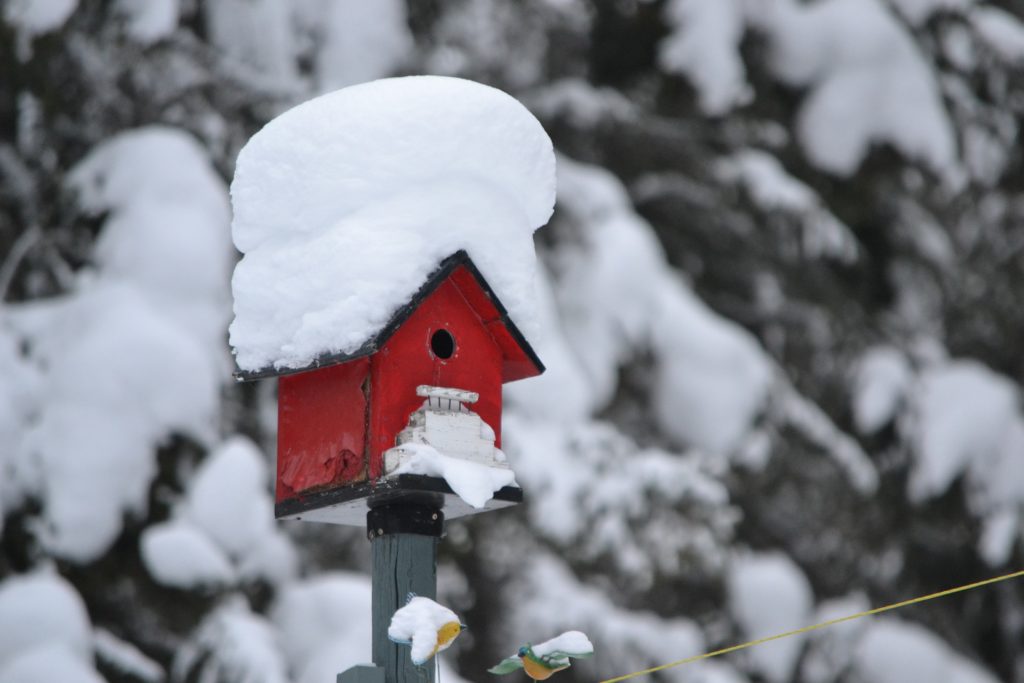 This landlord tip can easily save you hundreds! It’s harder to rent units December through February. And they rent for less. Avoid lease renewals falling on these dates. I offer incentives for 15 month or 18 month leases if I find myself looking for a new tenant during these months. This puts the renewal back in peak season for quick turnaround and maximum profit.
This landlord tip can easily save you hundreds! It’s harder to rent units December through February. And they rent for less. Avoid lease renewals falling on these dates. I offer incentives for 15 month or 18 month leases if I find myself looking for a new tenant during these months. This puts the renewal back in peak season for quick turnaround and maximum profit.
Tip #34 – Respond rapidly to necessary repairs
Keeping your rentals in good condition is the key to maximizing profits. Making timely repairs demonstrates your commitment to the well-being of your tenants and will make them want to stay longer. Be proactive in your maintenance to avoid major issues during their stay but when something goes wrong, fix it right way. I also include a lease clause that tenants must take steps to mitigate damages. If the toilet is leaking, don’t wait for me to drive over and shut off the water!
Tip #35 – Add a clause to allow showings
Minimize vacancy time by ensuring the right to show the unit during the tenants lease. This avoids unnecessary downtime between tenants. I add the following to my leases: Beginning 60 days prior to ending of lease term, with 24 hour notice, tenant will allow showing of the unit to prospective tenants or buyers accompanied by a licensed Realtor or owner and 2 (2 hour) open houses during which the tenant will not be present.
Tip #36 – Develop a system
Having a system to find tenants, do the necessary paperwork, set up deposit accounts, collect rent etc. is crucial to your success as a new landlord. There is a lot to handle and things can fall through the cracks if you don’t have a system. Develop a new tenant checklist to ensure you have completed all the task necessary to ensure a successful lease.
Tip #37 – Use Google Voice
While this falls under “embracing technology” I feel it warrants it’s own Tip. Don’t give tenants your personal phone number. Learn more.
Tip #38 – Don’t tell tenants you are the owner
When your tenants know you are the owner, they know the buck stops with you. If you are the property manager, you can appeal to the higher authority. “I wish I could allow that but it’s the owner’s policy.” Leave yourself this negotiating gambit and you will thank me later.
Tip #39 – Couple rent increases with improvements
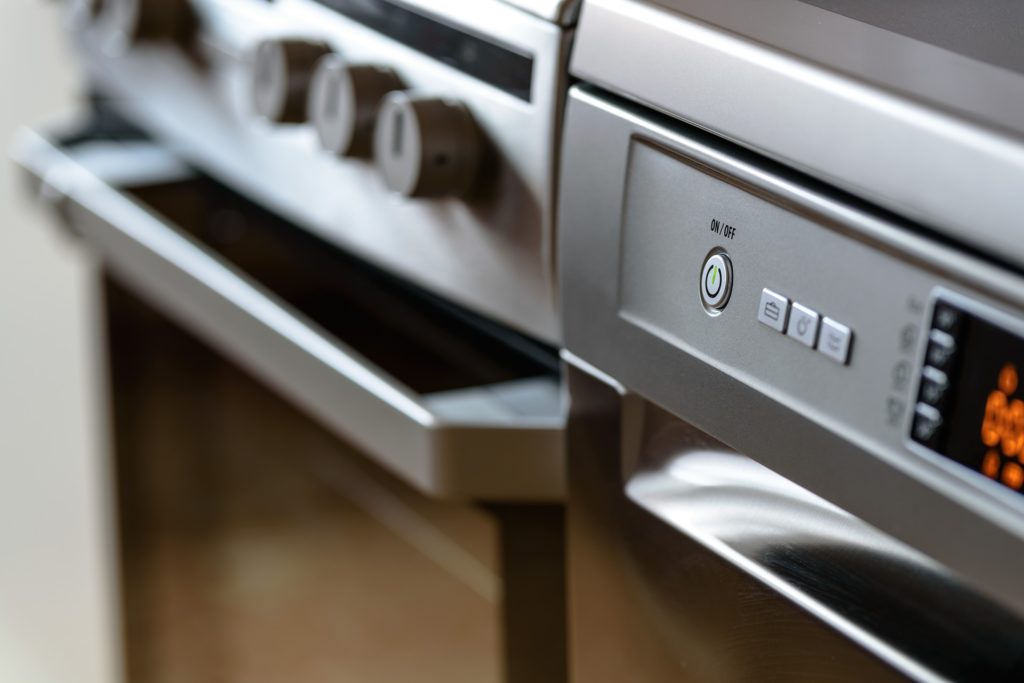 If you encounter resistance to a rent increase and would rather keep the tenant in place, offer an upgrade. A simple coat of paint could be all it takes. A new $600 refrigerator could be worth a $50/month rent increase. This is better than the expense and hassle of managing a turnover.
If you encounter resistance to a rent increase and would rather keep the tenant in place, offer an upgrade. A simple coat of paint could be all it takes. A new $600 refrigerator could be worth a $50/month rent increase. This is better than the expense and hassle of managing a turnover.
Tip #40 – Update home systems during a vacancy
Trying to repair a hot water heater or boiler in the middle of winter will not go over well with your tenants. Major HVAC system repairs can often take two days or more to complete. Take advantage of rental downtime. Avoid a tenant disruption and ensure systems are in good working order before a new tenant moves in or you may find yourself offering a concession for loss of use. Check out How To Minimize Tenant Turnover Costs for more money saving tips.
Tip #41 – Have a minimum maintenance threshold
Avoid nuisance calls and establish a minimum maintenance deductible owed by your tenant for all repairs. Otherwise you will find yourself arguing over who’s responsibility it is to change light bulbs.
Tip #42 – Never allow unauthorized “improvements”
Avoid the temptation to allow even the handiest of tenants to make “improvements.” You want your tenants to respect your property and keep it in great condition but you should require written approval for any improvements. You need to have a professional do major work simply for peace of mind.
Tip #43 – Set up a proper legal entity
This topic deserves more than just a mention. I suggest you study up on the basics by visiting websites like Nolo.com and LawDepot. Then find a lawyer knowledgeable in real estate law to discuss what is right for your situation. Do this before you start your business not after.
Tip #44 – Consider a professional property manager
If you don’t think you want to deal with the day-to-day management of buy and hold real estate investing, then you should definitely hire a property management company. My advice is to start with self-management until you learn the business and grow your holdings. The experience will be invaluable. If you are still considering a PM company, here is a great set of articles to help you find the best one for you.
Tip #45 – Make your tenants feel at home
 Do everything you can to make sure your tenants feel like they are home. I am careful to refer to the unit as their home in all of my communications and conversations with tenants. I find that if they believe it is their home, they will respect it more and stay longer.
Do everything you can to make sure your tenants feel like they are home. I am careful to refer to the unit as their home in all of my communications and conversations with tenants. I find that if they believe it is their home, they will respect it more and stay longer.
Tip #46 – Know your target market and tenant
Make sure you tailor your apartment to your optimal target. Millenials place a lot of value on inexpensive amenities such as extra storage space, USB outlets and bike racks. Marketing your rental as a Smart Home is another great way to attract a younger demographic. Consider installing a Ring Video Doorbell or a Ring Floodlight Camera.
If you are targeting an older renter, consider offering lawn maintenance included in the rent. Understand the features your target tenant is seeking and market your property accordingly.
Tip #47 – Set the right rent from the start
Do not price your rental too low or you risk losing profit for years. It can be tempting to lower rents to fill a vacancy quickly but raising rent to market rate may prove difficult. In fact, your local laws may stipulate the max rent increase you are allowed to charge. Work with a local realtor, check Zillow and Craigslist.
I’ve found RentRange to be a great guide in making sure my rents are not too low, not too high but just about right. It’s what the pros use. Learn more about rent estimate tools. Set the rent right from the start and avoid being locked in to below market rates. Note – setting your rent too high is never a problem for too long. No one will rent it and you will be forced to bring it to market rates quickly.
Tip #48 – Handover the unit in pristine condition
Set the expectation of how you want your tenant to maintain the property. Have the unit professionally cleaned before your new tenant moves in. This ensures they are pleasantly surprised as they probably saw the unit when it was occupied and in less than pristine condition. While not a universal law, I have found a remarkable correlation – you tend to get the property back in the condition in which you handed it over. Keep it pristine for your tenant and they will keep it pristine for you.
Tip #49 – Be organized
 Keeping track of even just one or two rentals can be overwhelming. You need to document everything and keep files for every tenant. Be sure to keep copies of the leases, signed move in forms, security deposit accounts, insurance policies, repair requests, etc. Whether you opt for physical copies or go digital – start one now and adjust as you go.
Keeping track of even just one or two rentals can be overwhelming. You need to document everything and keep files for every tenant. Be sure to keep copies of the leases, signed move in forms, security deposit accounts, insurance policies, repair requests, etc. Whether you opt for physical copies or go digital – start one now and adjust as you go.
Tip #50 – Build your team
You can’t do everything alone. It’s important that you start building your team from the start.
- Work with a local realtor in the beginning. One who regularly does rentals and has experience dealing with investors.
- Hire a CPA or Tax accountant who can help you understand the financial implications and plan accordingly.
- Find a crew you can always go for emergency repairs.
- Hire a lawyer to help you create a strong lease. If you don’t want to retain a lawyer but still need some advice, consider an online Ask-A-Lawyer service like RocketLawyer (affiliate partner). They can usually answer your specific question within 24 hours.
- As you expand, you will need to include an Insurance Broker, Mortgage Broker or Private Lenders, Contractors, and Inspectors.
Bonus Landlord Tip – Rent is not the only income source
 Don’t overlook other ways to monetize your investment. Can you charge for extra storage space on the property? Is it normal to charge for parking in your market? Can you offer yard maintenance or house cleaning services and charge a small premium for your efforts? Can you include coin-operated washer/dryers? There are lots of creative ways to add revenue streams to your properties. Be sure to take advantage of them.
Don’t overlook other ways to monetize your investment. Can you charge for extra storage space on the property? Is it normal to charge for parking in your market? Can you offer yard maintenance or house cleaning services and charge a small premium for your efforts? Can you include coin-operated washer/dryers? There are lots of creative ways to add revenue streams to your properties. Be sure to take advantage of them.
What are some of your Landlord tips?
I hope your’ve found these first time landlord tips helpful. But it’s certainly not complete so please leave your best landlord tips in the comments below.
Share this Landlord Tips Infographic
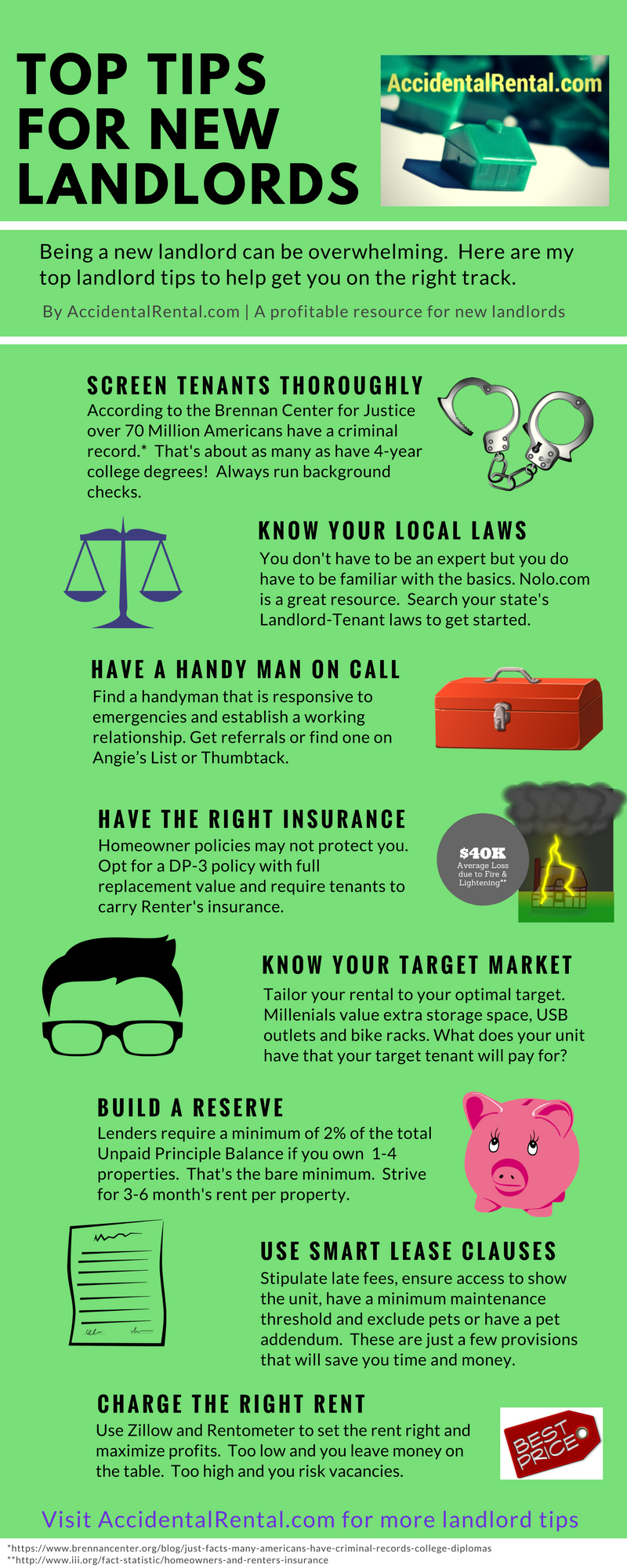
Top Landlord Tips – An infographic by the team at AccidentalRental.com
Embed Top Landlord Tips on Your Site: Copy and Paste the Code Below

